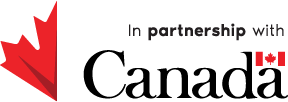Women Leading Durable Solutions (WLDS)—Myanmar
The Situation
The people of Myanmar have shown formidable strength and resilience in the face of decades of devastating natural disasters, protracted conflicts, and widespread poverty, with women and girls bearing the brunt of these crises.
Myanmar's people face different challenges. It's one of the countries most at risk from climate change, frequently experiencing devastating cyclones, floods, landslides, and droughts. Many are struggling with poverty due to a fragile economy, and the COVID-19 pandemic has added to the country's issues by putting a significant burden on the healthcare system. The number of people who require humanitarian assistance is expected to increase to over 17 million in 2023, up from 14 million in 2022.
Women and girls are being hit especially hard by all these issues. They are more likely to experience poverty and violence, often because of factors such as their gender, ethnicity, or religion. In Rakhine State, on Myanmar's western coast, women and girls are frequently excluded from decision-making processes that affect their lives, making it challenging to take control of their bodies and futures. The Rohingya population in this state also faces obstacles, as they live in confined camps with limited access to basic services and employment opportunities.
DETAILS
LOCATION
Myanmar
DURATION
5 years (2022 – 2027)
Lire la description du programme en français (PDF).
OUR SUPPORTERS
This project is undertaken with the financial support of the Government of Canada, provided through Global Affairs Canada, and the generous Canadian public.

What are we doing?
LEADERSHIP
Championing women and girls, especially in Rakhine State, to become community leaders by supporting their participation in decision-making spaces.
CHANGE
Challenging stereotypes against women and girls through art and human rights education to break down patriarchal and discriminatory beliefs and practices in camps and communities hosting displaced people.
SUPPORT
Advancing gender equality by improving job skills, providing access to clean water and toilets, and developing support services for survivors of gender-based violence.
What do we hope to achieve?
Women Leading Durable Solutions empowers women and adolescent girls in all their diversity to make their own decisions and enjoy their human rights in Myanmar.
The project aims to improve support services for those affected by sexual and gender-based violence. It will collaborate with local women's rights organizations to support their advocacy for diverse women and marginalized groups to be included in decision-making spaces related to peace, recovery, and development issues.
Women Leading Durable Solutions approach is three-pronged. It brings together humanitarian assistance, long-term development, and peace and security to meet women's needs, mitigate their vulnerabilities, and address the underlying drivers of conflict. Through this approach, the project will contribute to the peaceful coexistence of communities in Rakhine State.
What Oxfam aims to achieve:
- Hold 46 sessions to raise awareness about women's rights, aiming to reach 2,000 community members
- Challenge stereotypes, gender norms, and discrimination against women, especially young women, through 114 discussions that will reach 11,000 people
- Conduct 18 training sessions for women and girls in camps for internally displaced people and nearby communities
- Host 43 sessions and train over 900 individuals to become champions for gender equality, women’s rights, and peaceful coexistence
- Work with women leaders to design and improve 36 water, sanitation, and hygiene (WASH) services, benefiting 56,000 people
- Train over 700 young and adult women through Oxfam’s Gender Leadership Programme
- Support 50 women leaders to participate in policy discussions and decision-making spaces